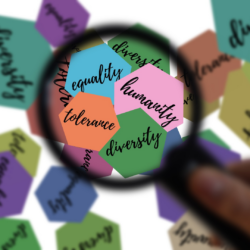Monitoring ERA Action 5 on inclusive gender equality implementation
A total of 18 Member States have committed to ERA Action 5, focusing on gender equality and inclusiveness: Austria, Belgium, Cyprus, Czech Republic, Denmark, Estonia, Finland, France, Germany, Ireland, Italy, Lithuania, Netherlands, Poland, Portugal, Slovenia, Spain and Sweden. While the description of what is expected from those MS is more detailed than in the previous ERA period, there is no requirement to formulate a national action plan to implement those actions. As a consequence, little is known about the MS priorities, objectives and planned or implemented measures. This information is crucial not only for the development of a shared understanding of gender equality concepts and for defining collective goals but also for mutual learning based on the exchange of good practices. For this reason, the first GENDERACTIONplus report on monitoring the implementation of ERA GE policies. It first presents the development of gender equality objectives in the ERA, including a...










